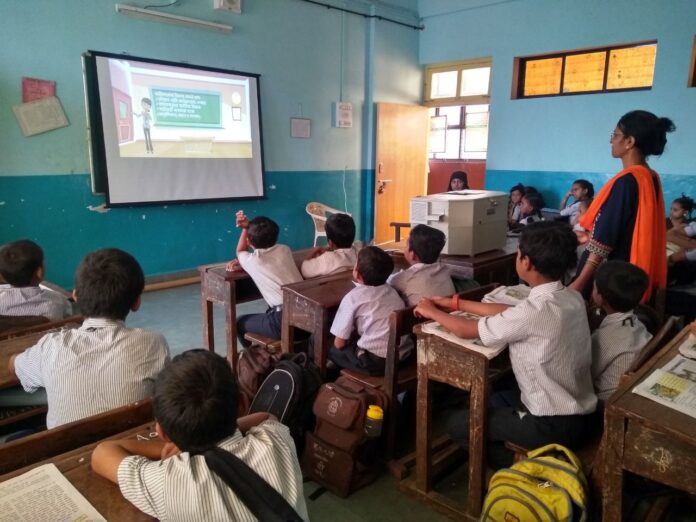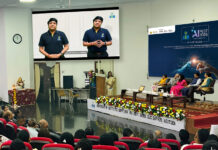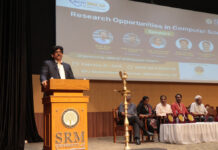A look at NEP 2020 from the bottom of the pyramid
Unlike students from private institutions in India, who get quick and easy access to new tools and processes in education, students relying on government institutions have to wait for the new education policies to be adopted. Given that school education plays the most crucial role in life-long learning, the National Education Policy (NEP) 2020 adopted by the Government of India after a long wait of 34 years holds immense significance for India’s government schools and their students. On 29th July 2021, NEP 2020 completed one year of adoption, leading keen followers of this space to take stock of how the policy had shaped governmental and non-governmental action towards its successful adoption.
What changed between 1986 and 2020?
National Education Policy 2020 is the most significant reform towards the public education system, undertaken by Government of India, since the National Policy on Education 1986. Given how much the world and India has changed between 1986 and 2020, the introduction of a new education policy that’ll enable our youth to be part of India’s growth story was truly long due. While the National Policy of Education 1986 focused more on providing access to public education to India’s citizens, the National Education Policy 2020 focuses on improving the quality of education, learning outcomes and employability. The new policy aims to leverage education-technology tools in a big way to achieve its objective, which is interesting to us as we’ve seen first-hand the kind of impact this can have on the learning outcomes and academic performance of children
Focus on early language skills, mathematical abilities and vocational skills
Our government schools have always struggled to impart language & mathematical skills to students in their formative years, which has later hampered understanding of other subjects and led most students to be ill-equipped and underconfident. Additionally, as students graduated to senior grades, government schools failed to impart vocational skills that would ensure employability, which has been detrimental to an entire generation of Indian youth. The new education policy’s strong focus on imparting early language and mathematical skills between Grade 1-3, and providing vocational education as early as Grade 6 is highly appreciated as we’ve observed the above problem first-hand, and strived to improve it by creating educational content that focuses on strengthening fundamentals before building upon it. We see the National Education Policy 2020 impacting the approach taken by other organisations working towards government school students which is great.
Teaching in mother or regional tongue takes centre-stage
Over the last few years, a big faction of India’s education and education technology industry was in favour of the gradual conversion of local language governmental schools to schools that followed English as the primary language of instruction. While there is no doubt that English is an important language to enable India’s youth to compete and succeed in today’s world, several studies worldwide have shown that learning in one’s mother or regional tongue in formative years is extremely effective. The National Education Policy 2020 has recognized the effectiveness of educating children in their mother or regional tongue during their formative years, which is a sentiment echoed by renowned educationists across the world. In fact, we, at ConnectEd Technologies, have closely witnessed the impact of our vernacular educational content on understanding levels and academic performance of government school students and are happy to see more organisations working as per the approach advocated by Government of India.
Assessments retain their importance, with a completely fresh approach
India’s public education system has always assessed and ranked students based on their performance in examinations; using marks as a yardstick to serve students with future opportunities – be it in terms of education or work. We have always believed that India’s education system needs to assess its students with a broader perspective, and leverage data from assessments to tailor education based on a student’s competencies – which is a global trend in education, that we follow across all projects. The new education policy has not only widened the scope of assessments but also ensured electronic storage of data collected from assessments and a comprehensive representation of this data. We believe this is a great step taken by the Government of India which has pushed the entire educational ecosystem to take a broader perspective of an individual’s competencies. Soon, we hope to see industry leveraging this data to improve the effectiveness and efficiency of their recruitment and training practices, which will positively impact their productivity and the country’s economy.
Creating a National Education Technology Forum (NETF)
Before founding ConnectEd Technologies in 2015, my partner and I had conducted extensive primary research across 570 government schools on the use of education-technology tools to improve quality of education in government schools. While there has never been a dearth of edtech companies in India, most organisations have chosen to create education-technology tools for private schools students, particularly those in urban or semi-urban areas. As a result, the peculiar needs of government schools and children that study therein have either been ignored by India’s edtech industry or catered to with sub-standard attempts that have failed to yield results. While ConnectEd Technologies has been extensively creating and deploying tailor-made edtech tools to government schools and their students across India, it has been interesting to see creation of a National Education Technology Forum (NETF). As a dedicated education technology unit that strives to understand and meet the peculiar infrastructure, content and service requirements of government schools, we see NETF being able to improve the quality of education in government schools, whilst inspiring others to do so too.
Future looks bright
There is no doubt the National Education Policy 2020 is a much required step in the right direction. The policy has all the elements required to prepare our youth to participate in India’s growth story, and one can see how the entire machinery has started transforming itself in the last one year to embrace the policy to its fullest. Having said that, there’s still some time to go before one can certainly say how effectively the policy has transformed into action. More importantly, it’ll be interesting to see how private players in the education and edtech industry supplement the government’s inclination, particularly when it comes to government schools which have been largely ignored so far.
About ConnectEd Technologies
Founded in 2015, ConnectEd Technologies is a Mumbai-based edtech social enterprise that specialises in executing large-scale, tech-enabled developmental projects aimed at govt. schools and the children that study therein. Our aim is to provide quality education and improve learning outcomes amongst children that study in govt. schools and, in this regard, our efforts have been recognized for their innovativeness by Government of India’s #StartupIndia program.
For the last 6 years, ConnectEd Technologies has been working with the State Govt. of Maharashtra on a CSR-funded campaign, named ‘EkShiksha’ which is linked to Hon’ble PM Shri. Narendra Modi’s ‘Digital India’ mission. Under this campaign, we have secured CSR funds from renowned organisations such as Reliance Industries, Hindustan Unilever, Sony Pictures, DHFL and Fullerton India amongst others to benefit more than 100,000 under-served students in Maharashtra through large-scale digitisation of govt. schools with e-learning infrastructure and tailor-made educational content.
Ever since the Covid-19 pandemic and ensuing closure of govt. schools, we have been working with various State Governments to digitally deploy its curriculum-linked educational content to govt. school students with CSR support from companies such as Sony Pictures, Tata Motors – ACGL, and EKC India amongst others. Currently, our educational content – which can be freely accessed by students using any phone or computer at their disposal – is being deployed to 1,50,000+ students across Maharashtra, Delhi, Gujarat, Haryana, Uttar Pradesh, Madhya Pradesh, Jharkhand and Goa; with projects across many more states in the pipeline.
Be it in its physical or digital avatar, our efforts have had tremendous impact on learning outcomes. Over a span of 3 years, our projects have increased the number of students getting ‘Grade A’ in their school examinations by 254%, and reduced the number of students getting ‘Grade D’ by 98%. In recent years, our proficiency at collaborating with key stakeholders and executing impactful projects at scale, have moved several clients to appoint us to roll-out of awareness campaigns on key themes as well.
For more information, log onto www.connected.org.in
Author Bio:

Mr. Lehar Tawde is the Co-founder of ConnectEd Technologies, which is an edtech social enterprise that specialises in creating tailor-made technologies and deploying large-scale developmental programs that make quality education accessible to government schools and the children studying therein. For the company, he leads Strategic Relations and Operations which requires him to utilise his past experience to build, manage and leverage relations across governments, socially-responsible corporations, grassroot-level educators and the company’s Operations team that execute projects on-ground. Even though his work lies at the intersection of multiple stakeholder groups, that come with their set of unique challenges, Mr. Lehar Tawde has been instrumental in bringing these stakeholders together to provide ConnectEd Technologies with a pan-India presence in a short span of time. Under his leadership, the company has been able to forge partnerships with the State Governments of Maharashtra, Delhi, Gujarat, Haryana, Uttar Pradesh, Madhya Pradesh, Goa and Jharkhand, with highly impactful projects rendered to over 2 lakh government school students for some of India’s most renowned socially-responsible companies such as Hindustan Unilever, Reliance Industries, Tata Motors – ACGL, Sony Pictures Networks, DHFL and Fullerton India amongst others.
















